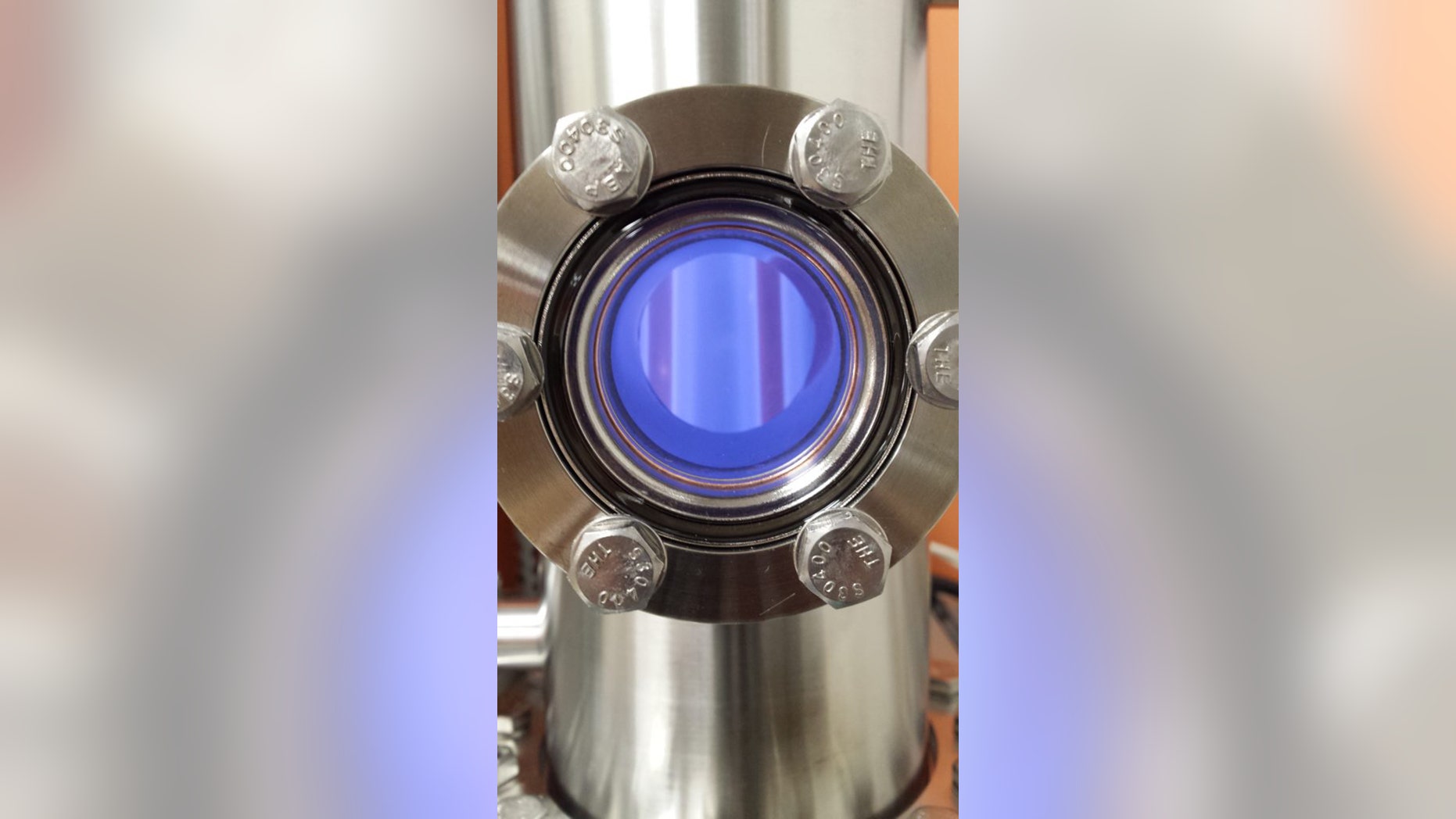
A CO2-rich planetary atmosphere exposed to a plasma discharge in Sarah Hörst’s lab. (Credit: Chao He)
One possible reason we might not have found E.T. yet is that he might be a breath of "fresh air."
A new study published in December suggests that exoplanets rich in oxygen may not necessarily contain alien life, despite the fact the element is a critical component for life on Earth.
“People used to suggest that oxygen and organics being present together indicates life, but we produced them abiotically in multiple simulations,” said the study's lead author, Chao He, in a statement. “This suggests that even the co-presence of commonly accepted biosignatures could be a false positive for life.”
CLICK HERE TO GET THE FOX NEWS APP
Earth's atmosphere is made up of several elements but is approximately 20 percent oxygen (the rest is largely comprised of nitrogen, argon and carbon), so scientists have long theorized that the presence of oxygen could indicate the existence of life, but He's work leads him to believe otherwise.
He and the other researchers performed a simulation experiment, testing nine different gas mixtures that are "consistent with predictions for super-Earth and mini-Neptune type exoplanet atmospheres." Each mixture contained water, carbon dioxide, ammonia and methane and was heated at various temperatures, ranging from 80 to 700 degrees Fahrenheit.
After being put into the Planetary HAZE (PHAZER) chamber for three days and exposed to two types of energy - plasma and UV light - the researchers found that the various compounds generated oxygen and organics including formaldehyde and hydrogen cyanide.
"Our laboratory results indicate that complex atmospheric photochemistry can happen in diverse exoplanet atmospheres and lead to the formation of new gas products and haze particles, including compounds (O2 and organics) that could be falsely identified as biosignatures," the study's abstract reads.
The study is reminiscent of one published in early 2018, which also said that oxygen may not be the only precursor for life.
PLANET NINE MAY EXIST, BUT IT MIGHT BE HIDING BEHIND NEPTUNE
He's study was funded by the NASA Exoplanets Research Program Grant NNX16AB45G and was published in the journal ACS Earth and Space Chemistry.
A great number of exoplanets were discovered in 2018, including one that is twice the size of Earth and is just 145 light-years away from our planet. Known as Wolf 503b, this exoplanet revolves around its star once every six days.
Due to its proximity to Earth, Wolf 503, the star Wolf 503b orbits, will be a "prime target" for the James Webb Space Telescope, which will help determine the planet's atmosphere and see if it contains any of the necessary building blocks for life, including hydrogen and water.
Follow Chris Ciaccia on Twitter @Chris_Ciaccia
Read Again https://www.foxnews.com/science/alien-planets-rich-in-oxygen-may-not-necessarily-be-home-to-life-shocking-study-saysBagikan Berita Ini














0 Response to "Alien planets rich in oxygen may not necessarily be home to life, shocking study says - Fox News"
Post a Comment